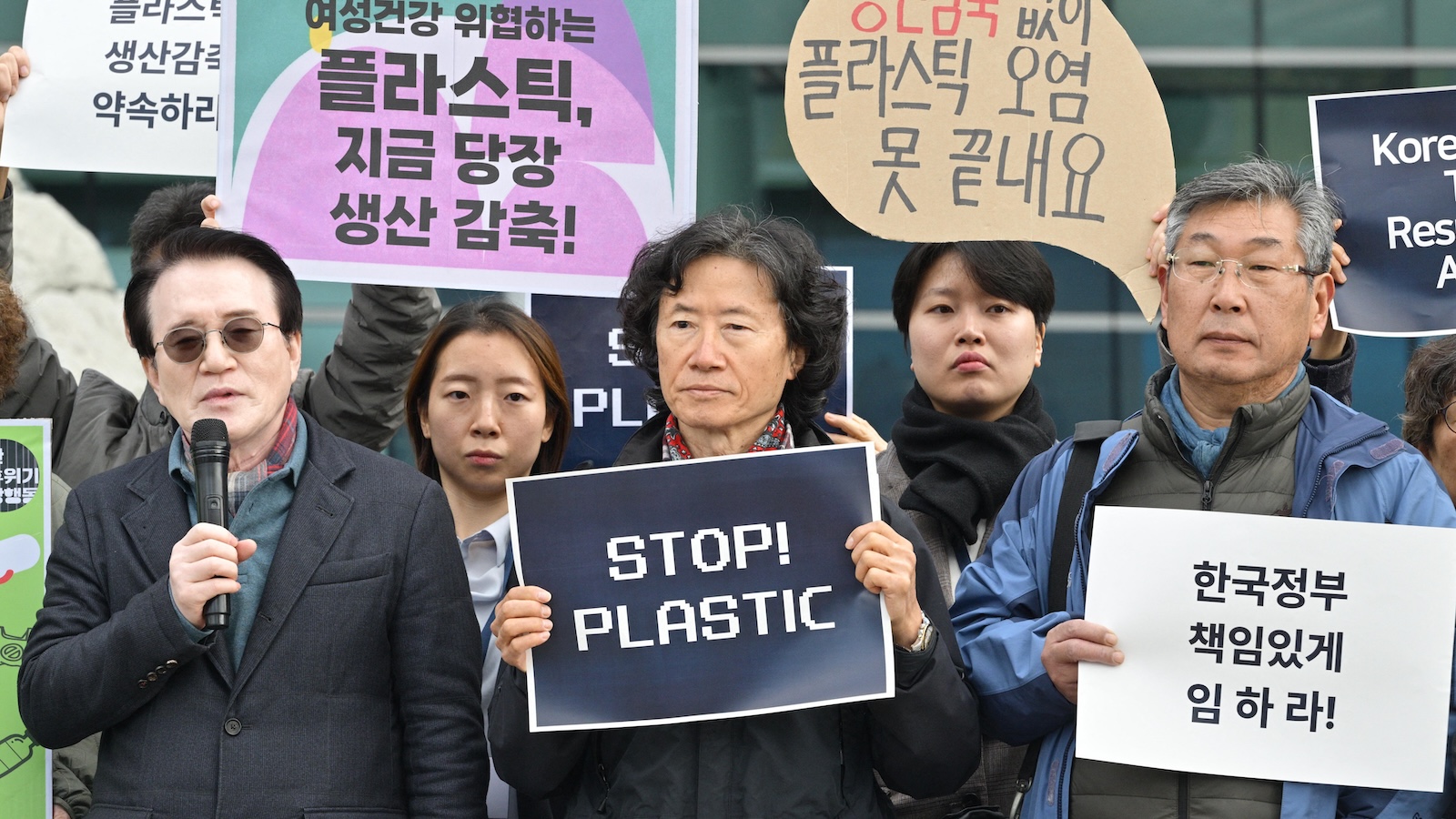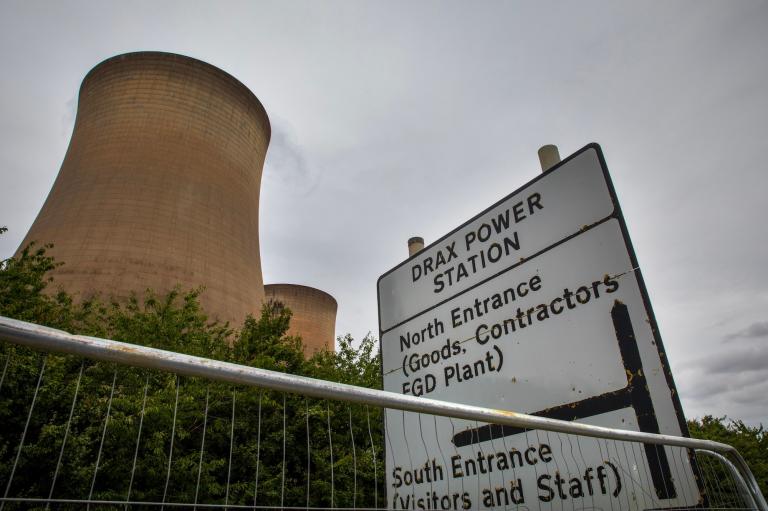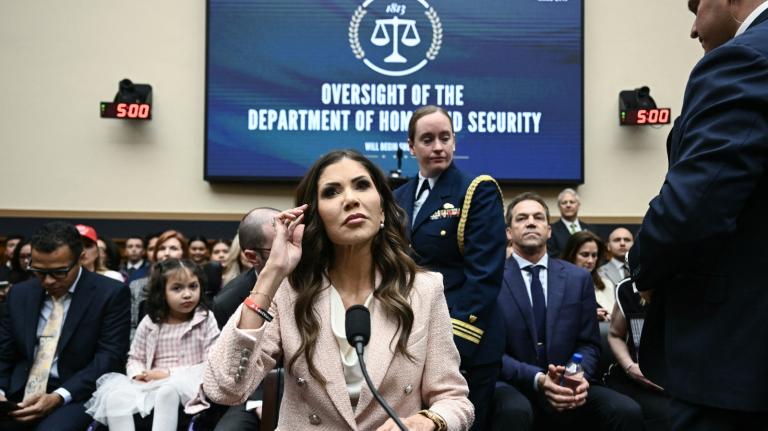Just a day after the conclusion of the United Nations’ annual climate conference in Azerbaijan, diplomats began convening in Busan, South Korea, for a separate bout of discussions — this time over plastics.
The fifth and potentially final round of negotiations over a global plastics treaty began on Monday, with hopes running high that countries will be able to wrap up a deal to address plastic pollution by December 1. During an opening ceremony, speakers from the U.N. entreated delegates to find the “bold political will” to address plastic’s damage to human health and the environment. South Korea’s environment minister, Kim Wan Sup, said that “we must end plastic pollution before plastic pollution ends us.”
Specifically at stake at INC-5, the official name for this round of negotiations, is what many participants consider to be the treaty’s defining question: Will the world directly limit the amount of plastic that manufacturers can produce? Dozens of countries have argued that a production cap is the only way to achieve the treaty’s goal to “end plastic pollution,” though they’ve had a hard time convincing oil-producing countries to agree. Virtually all plastics are made from fossil fuels.
Proponents of a production cap, who include environmental groups and a coalition of scientists, sometimes liken the plastic pollution crisis to an overflowing bathtub. Instead of mopping up the floor — cleaning up existing plastic waste while the industry plans to produce more and more — they want to turn off the metaphorical tap. Reducing plastic production would also cut greenhouse gas emissions and mitigate people’s exposure to the 16,000 chemicals used in plastic products, at least 4,200 of which have hazardous properties.
There’s also a financial case for hard limits on plastic production: The Institute for Environmental Economics and Financial Analysis, a think tank, recently argued that a cap on the production of primary plastic polymers, combined with other demand and supply initiatives, could smooth volatility and price instability currently affecting producers.
“World leaders gathering here in Busan must deliver an agreement that progressively cuts the unfettered production of plastic,” Von Hernandez, the global coordinator for the anti-plastic coalition Break Free From Plastic, said in a statement. Along with the nonprofits Greenpeace and World Wildlife Fund, Break Free From Plastic delivered a 3-million-signature petition to government officials on the day before discussions began, asking for them to “drastically reduce” the production of plastic.
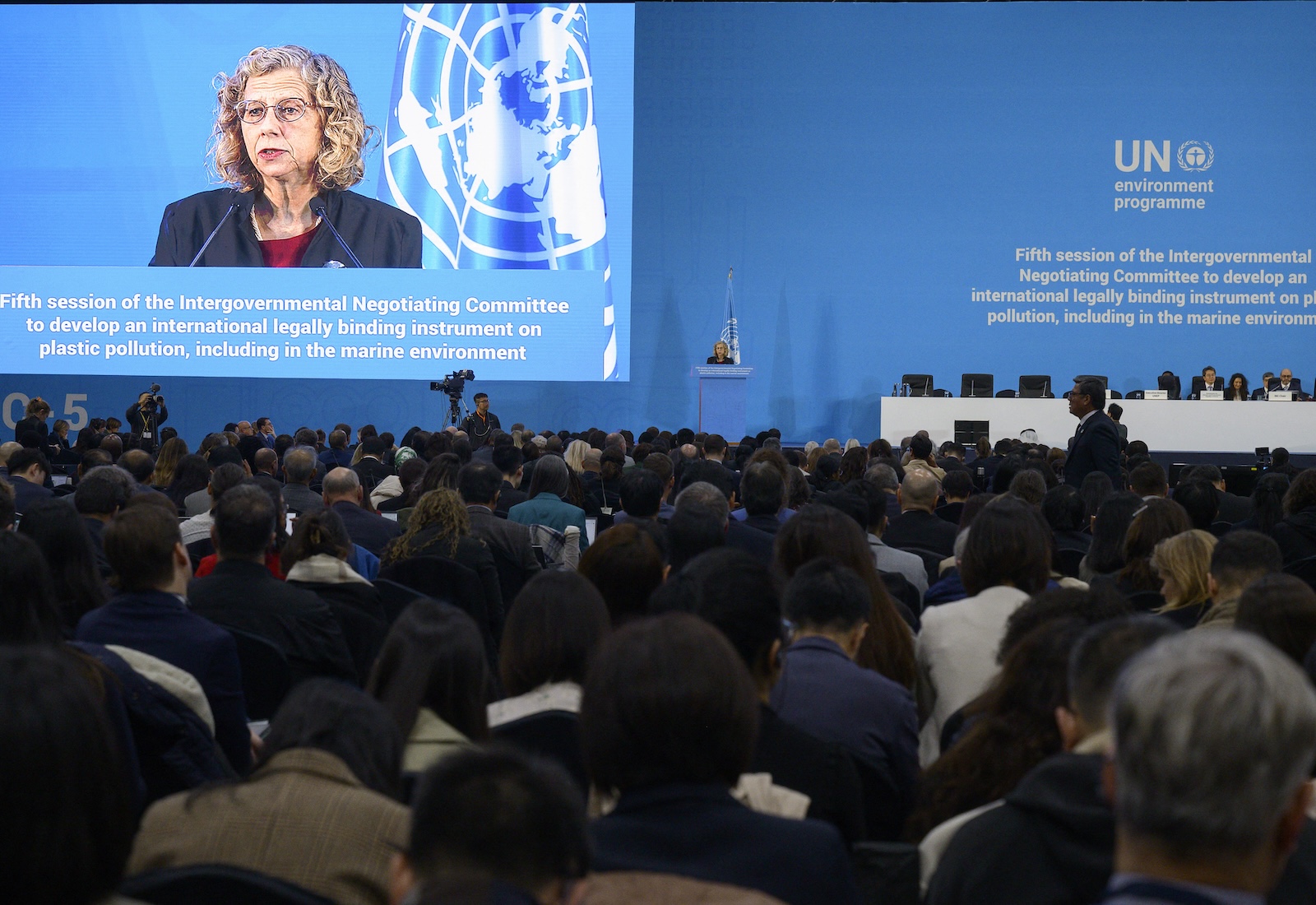
Much has changed since countries first agreed to negotiate a plastics treaty in 2022, and even since the last meeting in April. This summer, the United States indicated it would support production caps as part of the treaty, only to flip-flop the week after the reelection of former President Donald Trump. Chris Dixon, an ocean campaign leader for the nonprofit Environmental Investigations Agency, who is attending the talks, said any hope that the U.S. would eventually ratify the treaty has “completely evaporated,” since Republicans will soon take control of the Senate.
There are other signs that nations may not agree to a production cap at INC-5. In the lead-up to the conference, U.N. Environment Programme Executive Director Inger Andersen appeared to place her thumb on the scale by making several speeches and media appearances in which she emphasized plastics’ utility to society, a common industry talking point. In an interview with the international news agency AFP, she characterized the debate on production caps as “not an intelligent conversation.”
“These remarks are part of a concerning pattern of statements that risk prejudicing the outcome of the negotiations,” wrote more than 130 environmental organizations in a letter sent to U.N. Secretary-General António Guterres in October.
Luis Vayas Valdivieso, the chair of INC-5, also drew scrutiny for the way he consolidated the previous meeting’s text — a bloated document filled with just about everyone’s desired language — into a more manageable basis for negotiations. For unclear reasons, he deleted the article that had been titled “primary plastic production,” which presumably would have dealt with a potential cap, and replaced it with a vaguer article on “supply,” focusing mostly on voluntary national commitments.
Instead of production caps, some countries, including the U.S., say they support so-called market mechanisms to indirectly drive down demand for plastic production. This could involve anything from a plastic tax to bans on particular plastic products. They want the treaty to focus on boosting plastics recycling above the abysmal current rate of 9 percent and cleaning up existing plastic pollution.
The American Chemistry Council, or ACC, a U.S. trade group, says a plastic production cap would axe jobs and cause an “increased environmental footprint,” since alternative materials weigh more and thus cause more greenhouse gas emissions during transport.
The ACC did not respond directly to Grist’s request for comment on the financial case for a production cap, but the president of the group’s division representing plastic makers, Ross Eisenberg, implied that demand for plastic products will increase as the global population becomes wealthier. He cited a 2024 report commissioned by the International Council of Chemical Associations, of which the American Chemistry Council is a member, finding that a plastic production cap could increase the costs of many goods and services and that this would “impact those least able to afford it.
“The most efficient way to balance supply and demand is through natural market forces, rather than arbitrary production caps,” Eisenberg said.
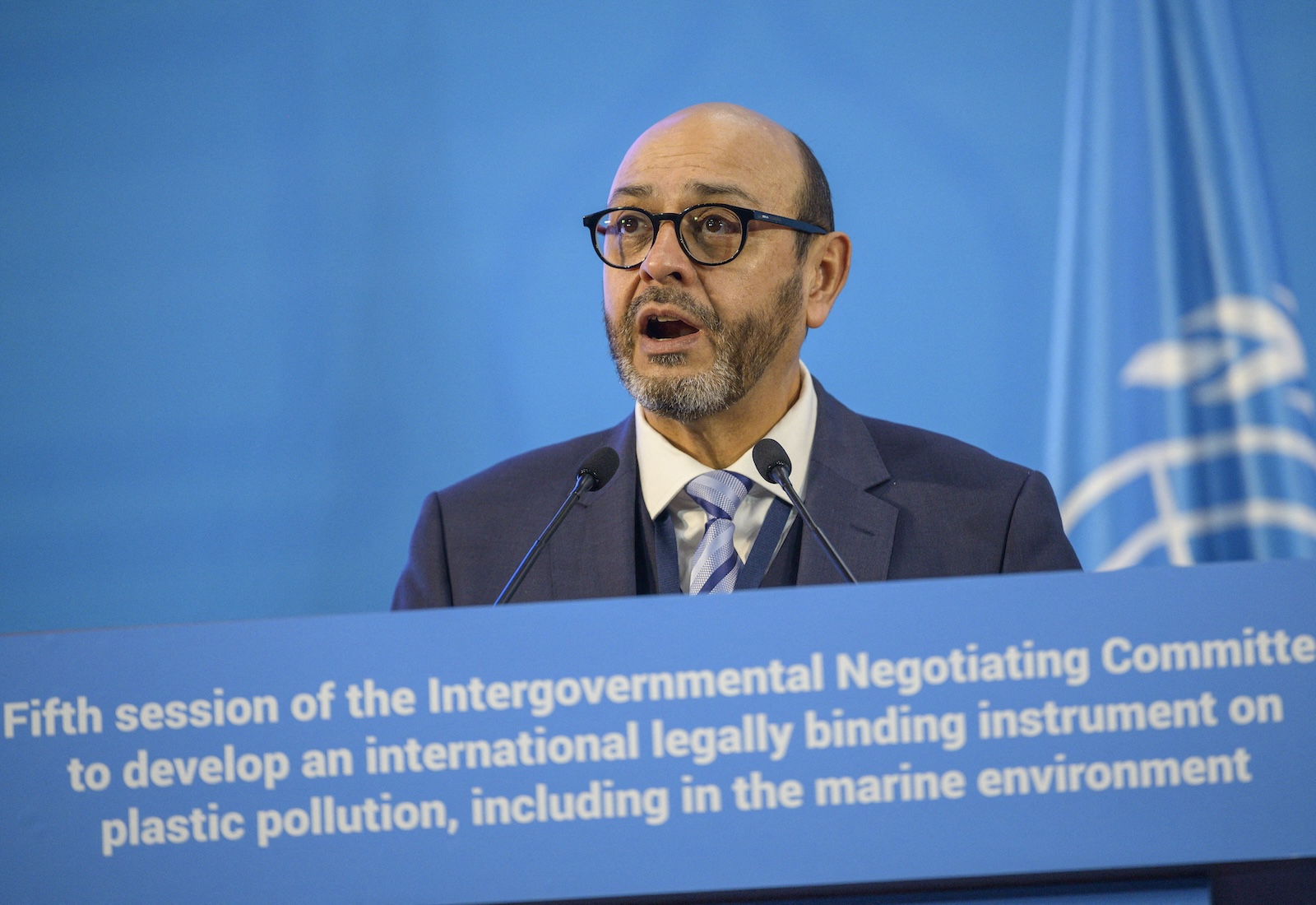
Benny Mermans, chair of the World Plastics Council, said in a statement ahead of INC-5 that “we have the power to shape a future where society continues to reap the immense benefits of plastics without them becoming pollution.” He called for an agreement that treats plastics “as valuable resources rather than waste.”
According to an analysis from the nonprofit Center for International Environmental Law, 220 fossil fuel and chemical industry lobbyists registered to attend INC-5, more than all of the European Union and its member states combined.
It’s too early to know what will come of the INC-5 discussions, but the first days of the meeting suggest the week will be deeply divisive. At two events last Sunday and Monday, Andersen again faced scrutiny from environmental groups and the media for appearing to try to influence the negotiations — this time by allegedly conducting closed-door meetings with national delegations in which she pressured them to drop production caps from their priorities. Green groups also raised concerns that the decision to base negotiations off of Valdivieso’s streamlined text was being “largely ignored,” with some countries allegedly attempting to overload the document with new suggestions.
By Wednesday, some delegates were expressing frustration at the slow pace of the negotiations, saying that “the end seems far from sight.”
Among the other issues to be resolved — or not — during INC-5 are whether the treaty will ban or restrict lists of toxic chemicals used in plastics, how to pay for the treaty’s provisions, and how the agreement will be structured. Many countries, supported by environmental groups, favor a top-down format with legally binding global provisions; others, including the United States, favor a voluntary approach where countries are free to set their own targets, whether they’re on plastic production and use or pollution management.
Lennox Yearwood Jr., president and CEO of the social justice organization Hip Hop Caucus, told Grist from Busan that countries should gavel a treaty protecting frontline communities most likely to live near petrochemical plants and landfills. “Negotiators at INC-5 must prioritize binding measures that cap plastic production, outline our commitment to address the current harm the fossil fuel industry poses, and address plastic waste,” he said.
“Without bold action, the treaty negotiations risk becoming another missed opportunity to tackle environmental racism on a global scale.”

